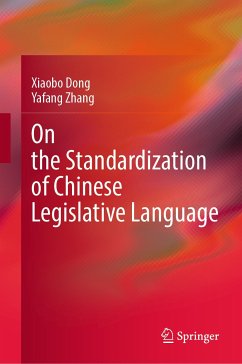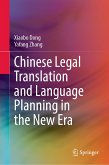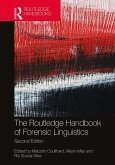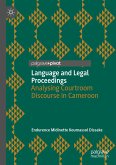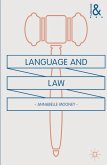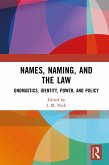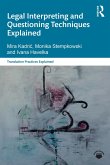By integrating different research angles and methods of philosophy of law, sociology of law, applied linguistics, and legal translation, this book presents a groundbreaking approach to the non-standardization phenomenon in Chinese legislative language, unveils the underlying causes and adverse effects thereof, and provides potential principles, strategies, and methods to be followed in the standardization of Chinese legislative language. Divided into three parts, this book firstly talks about the fuzziness of language, addressing both the active and negative influences thereof on the legislation; secondly approaches the non-standardization phenomenon in Chinese legislative language from the perspective of philosophy of law; and thirdly offers a comprehensive studies on the standardization of Chinese legislative language, offering possible solutions to address the above-mentioned problems and promote the standardized development of law making. This book facilitates the legal practitioners, jurists, law students, legal translators as well as the non-experts to get a better understanding of the mechanism and process of legislation and improve their skills and capacities in apprehending and translating Chinese laws and regulations.
Dieser Download kann aus rechtlichen Gründen nur mit Rechnungsadresse in A, B, BG, CY, CZ, D, DK, EW, E, FIN, F, GR, HR, H, IRL, I, LT, L, LR, M, NL, PL, P, R, S, SLO, SK ausgeliefert werden.

